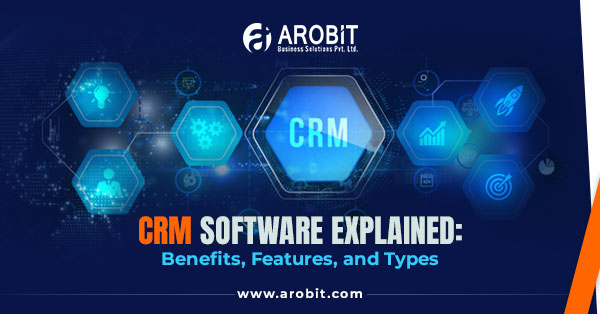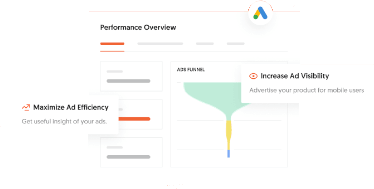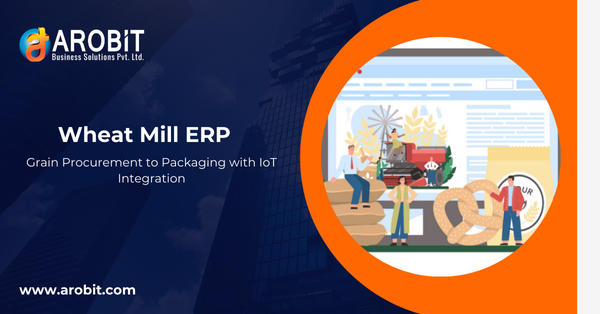CRM is an essential element of business strategy in the modern business world, helping organizations handle customer interactions. As indicated by a recent report, the global CRM market will reach $128 billion by 2025. This reflects tremendous growth, as businesses are now acknowledging that customer-centric strategies are key to success.
In the competitive landscape of today, understanding and utilizing customer relationships can be the difference between success and failure.
There are several purposes for business owners served by CRM software:
- Strengthens customer interaction by offering customers means of tracking and reporting interaction.
- That automates repetitive tasks and streamlines operations.
- It enhances data management and leads to better decision-making based on customer insights.
A robust CRM system enables businesses to establish better relationships with their customers, thereby resulting in higher loyalty and increased sales.
Benefits of Implementing CRM Software
CRM software has the potential to transform the way businesses operate, offering a range of valuable benefits that streamline processes and enhance customer relationships. Here’s how CRM can make a difference:
1. Consolidate Customer Data
Many businesses are still using fragmented databases and spreadsheets as a means of managing customer information, but this may result in inaccurate and inefficient handling. One central location for all customer data—the CRM software—eliminates several tools, and this ensures accurate, updated information for everyone on the team, improves collaboration, and reduces risks of errors.
2. Boost Organization and Efficiency
With a centralized system, accessing customer data becomes seamless, improving workflows and productivity across departments. For example, sales teams can easily review past interactions with clients, enabling them to craft tailored pitches and personalized follow-ups. This streamlined approach not only saves time but also improves customer engagement.
3. Save Time Through Automation
CRM software automates routine activities, like sending follow-up emails, scheduling appointments, or creating reports. In this way, employees will be freed up to spend more time on higher-level, strategic activities that will lead to business growth and innovation.
4. Strengthen Customer Relationships
CRMs empower businesses to deliver personalized experiences and build loyalty by tracking customer interactions and preferences. For example, a salesperson can be alerted when a customer frequently purchases a specific product so that he or she may proactively recommend complementary items or offer timely promotions.
5. Enable Data-Driven Decisions
CRM systems are pre-installed with analytics tools that generate insights into customer behavior and preferences. Such insights further help businesses make the appropriate decisions, whether it involves refining marketing strategies, developing new products, or improving customer service. With data at their disposal, companies can operate confidently and precisely.
With CRM software, businesses can replace old ways of doing things, optimize operations, and build stronger, more meaningful relationships with customers. The outcome? Greater efficiency, better decision-making, and a foundation for sustained growth.
Key Features of CRM Software
CRM software is furnished with various features that enhance its functionality:
- Centralized data management: Customer information coming from several sources can be stored and is then accessible to departments for quick retrieval. This will allow all departments to see the same data, which will prevent the occurrence of conflicting interactions with customers.
- Tracking communications: Tracks all interactions across various channels (form fills, calls, emails, text messages, meetings). This is a holistic way of tracking all the interactions that take place with the customer, which is helpful in providing great service.
- Accessibility for team collaboration: Enable coordination among team members through mutual communication to ensure everybody knows what is happening, customer-wise. Most CRM programs come with collaborative features such as shared calendars, the assigning of tasks, and putting in notes that keep them together.
- Integration capabilities: The latest CRM solutions will often integrate well with other business tools, such as email platforms, marketing automation software, and e-commerce systems. It provides added functionality and gives a more complete view of customer interactions across all touchpoints.
Types of CRM Software
Understanding the various types of CRM software will help businesses choose the right solution.
- Operational CRM : Focuses on automating customer-facing processes like sales and marketing. This helps streamline workflows by automating activities like lead generation and follow-up communications.
- Analytical CRM: Focuses on the analysis of data for insight into customer behavior to enhance relationships. Analytical CRMs make use of data mining techniques that help find trends and patterns in customer behavior and help businesses make decisions on data.
- Collaborative CRM: It strengthens communication and cooperation between people within an organization. It means a kind of CRM, wherein departments involved in sales, marketing, and support functions coordinate by discussing customer-related information with each other.
Impact on Business Operations
The implementation of CRM software can significantly impact business operations:
- Streamlining processes: Workflows are automated, minimizing manual effort and maximizing efficiency. For example, a marketing team can automate email campaigns based on customer behavior tracked by the CRM.
- Automation capabilities for small businesses: It allows small businesses to compete with large companies through technology to manage customer relationships efficiently. Small businesses are limited in resources; therefore, using a CRM system can help them make the most of their efficiency without requiring a large staff.
- Overall improvement in sales and service delivery: This is because businesses can tailor their offerings for better results by providing insights into customer needs and behaviors. For instance, if analytics show that customers are frequently abandoning their shopping carts online, a business can implement strategies to reduce this rate through targeted follow-up emails or promotional offers.
Role of CRM in Cloud Computing
With the emergence of cloud technology, most businesses are shifting towards CRM in cloud computing. This has several benefits:
- Access anywhere: The cloud-based CRM allows the team to work from any place, enabling flexibility in the work schedule. An employee can easily work from home or during travel without losing access to critical information.
- Scalability: Businesses can scale their CRM solutions as they grow, without necessarily having to be involved in an extensive IT infrastructure. The cloud typically offers tiered pricing, so businesses can pay for only what they need at any time.
- Automatic updates: Updates in the cloud-based CRM are automatically given to keep the user on the cutting edge, thus not necessarily requiring installations or upgrades on their own.
FAQs
Addressing common questions can clarify the role of CRM in business:
Q1. What functionalities does CRM software offer?
A1. CRM software helps manage customer data, track interactions, automate tasks, and analyze trends.
Q2. How can CRM be tailored to different business needs?
A2. Customization options allow businesses to modify features based on their specific requirements and industry demands.
Q3. How does ERP software integrate with CRM software, and what are the benefits?
A3. ERP software combines with CRM software to make a business have easy data transfer between various departments by connecting the various functions. Data accuracy enhances customer information, and the automation of different activities in between sales and operation leads to efficient processes when ordering is done; in addition, analytics depth for customers as well as coordination towards excellent customer care is realized.
Q4. What are CRM software development services?
A5. CRM software development services include designing custom solutions tailored specifically for business needs; building these systems; integrating them with existing tools; providing ongoing maintenance; and offering training for staff on how best to utilize them effectively.
Q5. What is custom CRM development?
A6. Custom CRM development thus creates custom solutions tailored for fit in business workflows and their requirements instead of going ahead with a shelf product that cannot aptly match every requirement for perfection.
Q6. What are some of the best CRM software options in India?
A6. Some of the best CRM software in India are Zoho CRM, known for its affordability; Freshworks CRM; Salesforce; and HubSpot, which is really good for inbound marketing.
Q7. Which are some of the best CRM companies in India?
A7. Some of the best CRM companies in India are Zoho Corporation, Arobit Business Solutions, Salesforce India, and HubSpot India for their inbound marketing capabilities.
Conclusion
In conclusion, CRM is a very important aspect of modern business practices. With the right CRM software, organizations can enhance their client management strategies while improving operational efficiency—ultimately driving growth across various sectors!
As we enter an age of rapid technological advancements, especially those directly related to cloud computing & artificial intelligence, it will be crucial for companies to adopt robust solutions if they want to not only survive but thrive amid fierce competition within today's marketplace! Embracing these tools fosters better relationships with customers while positioning firms for long-term success increasingly reliant upon digital transformation initiatives!








